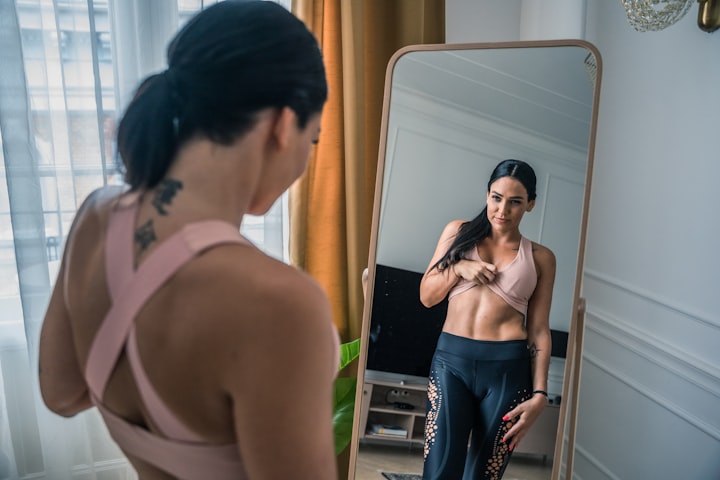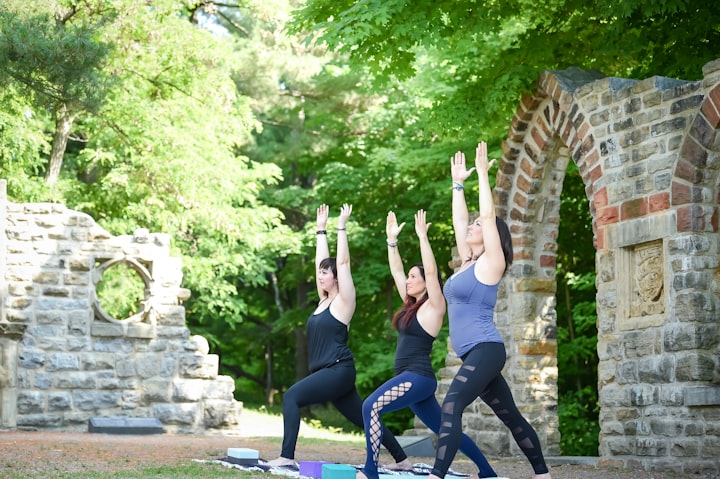Balancing Body Image and Sexual Satisfaction
Navigating Social Media

The article explores the impact of social media on body image and sexual satisfaction, discussing how platforms like Instagram contribute to unrealistic beauty standards, the role of social influences in shaping body image perceptions, and the connection between social media use and sexual satisfaction in relationships. It also provides recommendations for promoting positive body image and mindful social media use.
Overview of the Impact of Social Media on Body Image and Sexual Satisfaction
Social media platforms like Instagram have become significant influencers in shaping societal beauty standards and body image perceptions. The constant exposure to idealized and often unrealistic portrayals of beauty on social media can lead to increased body dissatisfaction and lower self-esteem, especially among young adults. For example, individuals scrolling through Instagram may come across images of influencers with perfectly sculpted bodies or flawless skin, leading them to compare themselves and feel inadequate. These comparisons can fuel negative self-perceptions and heighten body dissatisfaction, highlighting the detrimental impact of social media on body image. Such exposure to beauty ideals can contribute to the normalization of unrealistic beauty standards and the perpetuation of unattainable body ideals.
Moreover, cyberbullying on social media platforms further exacerbates these negative effects by damaging individuals' self-esteem and body image perception. Hurtful comments, body shaming, or online harassment can significantly impact an individual's mental well-being and how they perceive their bodies. Research has shown that exposure to such negative interactions online can lead to increased body dissatisfaction and a distorted body image. Therefore, the pervasive nature of social media platforms like Instagram can have profound implications for individuals' body image perceptions and self-esteem, underscoring the importance of promoting positive body image in the digital age. The pressure to conform to these unrealistic beauty standards portrayed on social media can lead to disordered eating behaviors and heightened body dissatisfaction.
In a study by researchers at the American Psychological Association, it was found that reducing social media use by 50% for a few weeks significantly improves body image and weight esteem in teens and young adults. This reduction in social media consumption not only improves how individuals perceive their bodies but also enhances their overall self-esteem. For instance, limiting screen time to only 60 minutes per day has shown promising results in improving appearance perception, highlighting the detrimental effects of excessive social media exposure on body image. By understanding the impact of social media on body image and actively implementing strategies to limit its influence, individuals can cultivate a more positive relationship with their bodies and enhance their overall well-being. Ongoing research is delving deeper into the long-term effects of reducing social media use on psychological well-being, shedding light on the potential benefits of mindful social media practices in promoting mental wellness and positive self-image.
Shaping Body Image Perceptions
Social media's impact on body image perceptions extends beyond mere observation; it actively shapes how individuals view themselves and others. The continuous exposure to edited and filtered images on platforms such as Instagram can create a distorted sense of reality, leading to unrealistic beauty standards. This can result in individuals feeling pressured to conform to these ideals, even if it means resorting to unhealthy practices like extreme dieting or excessive exercising to achieve a similar appearance, thereby increasing the risk of disordered eating behaviors. The normalization of these unrealistic standards through influencers and celebrities can significantly impact individuals' perceptions of their bodies and contribute to body dissatisfaction. The societal pressure to attain the "perfect" body as depicted on social media can lead to a negative self-image and perpetuate a cycle of comparison and dissatisfaction.
Furthermore, the prevalence of influencers and celebrities promoting a particular body type as the epitome of beauty contributes significantly to the normalization of these unrealistic standards. By showcasing their seemingly flawless physiques, these figures inadvertently set unattainable benchmarks for their followers, fostering feelings of inadequacy and body dissatisfaction among impressionable individuals. The continual exposure to such content can erode self-confidence and perpetuate the belief that one's worth is intrinsically tied to their physical appearance, further fueling negative body image perceptions. In this way, social media plays a pivotal role in shaping not only how individuals perceive their own bodies but also in influencing societal beauty standards as a whole. The Tripartite Influence Model explains how social influences contribute to body dissatisfaction by emphasizing the roles of peers, parents, and media in influencing body image perceptions.
In a study examining the effects of hegemonic beauty versus body diverse Instagram content on body dissatisfaction, exposure to hegemonic beauty ideals was found to increase body dissatisfaction, while exposure to body diversity content reduced it. The study aimed to understand how these different types of content influenced body satisfaction and found that social comparison tendencies and internalization of beauty ideals played moderating roles in the relationship between exposure to diverse image types and body dissatisfaction. The results underscore the importance of considering social media content in understanding body dissatisfaction and promoting body positivity. By actively engaging with content that celebrates diverse bodies, individuals can challenge unrealistic beauty standards and cultivate a more accepting view of themselves and others. This exposure not only promotes self-acceptance but also challenges conventional beauty norms, encouraging individuals to embrace their unique attributes and celebrate diversity.

Influence on Self-Esteem and Body Dissatisfaction
The influence of social media on self-esteem and body dissatisfaction is profound, particularly when individuals engage with content from people they know personally. For example, seeing posts from friends, celebrities, or influencers showcasing unrealistic beauty standards can significantly impact appearance satisfaction and contribute to feelings of inadequacy and body dissatisfaction. This constant exposure to curated and often unattainable images can create a distorted perception of one's body, leading to a negative self-image and lowered self-esteem. Social comparison theory, a concept deeply ingrained in social psychology, plays a significant role in shaping appearance satisfaction on social media platforms. When individuals view posts by people they know personally, such as friends or celebrities, they are more likely to engage in comparisons that directly impact their own perception of their bodies and overall satisfaction. For instance, a study conducted by psychologists found that young adults who frequently saw posts of their peers showcasing their physiques were more prone to feeling dissatisfied with their own bodies, leading to a negative impact on their appearance satisfaction.
Moreover, the comparison and competition prevalent on social media platforms intensify these feelings of inadequacy. Research indicates that individuals tend to compare themselves to others, especially those they know personally, which can further exacerbate body dissatisfaction. The pressures to conform to societal beauty standards portrayed on social media, such as having the "perfect" body, can fuel disordered eating behaviors and perpetuate an unhealthy relationship with one's body. Therefore, it is essential to be mindful of the content consumed on social media and consider limiting exposure to accounts that promote unrealistic beauty ideals to safeguard self-esteem and body positivity. To mitigate the negative effects of social media on body image and self-esteem, it is recommended to limit social media use and follow profiles that promote healthier body image.
Connection with Sexual Satisfaction in Relationships
The connection between social media and sexual satisfaction in relationships is multifaceted and influenced by various factors. For instance, the portrayal of idealized body images on platforms like Instagram can set unrealistic beauty standards, leading individuals to compare themselves to these unattainable ideals. This constant exposure to perfected images may result in body dissatisfaction, affecting one's self-esteem and, consequently, their level of sexual satisfaction within a relationship. Studies show that personal comparisons made on social media platforms play a significant role in shaping body image perceptions and, subsequently, impacting sexual satisfaction. For example, individuals may compare their appearance, weight, or physical attributes to those of influencers or peers on social media, leading to feelings of inadequacy or dissatisfaction with their own bodies. These comparisons can create a sense of competition and pressure to conform to certain beauty standards, potentially straining one's self-confidence and satisfaction with their intimate relationships. The cycle of comparison and self-evaluation perpetuated by social media highlights the intricate link between body image perceptions, self-esteem, and sexual satisfaction in relationships.
Moreover, personal comparisons on social media platforms can contribute to body dissatisfaction, indirectly affecting sexual satisfaction within relationships. When individuals constantly compare themselves to others online, especially in terms of physical appearance, it can lead to feelings of inadequacy and a negative self-image. These comparisons may create unrealistic expectations for oneself, impacting how individuals perceive their bodies and, consequently, their level of satisfaction in intimate relationships. By understanding the impact of social media on body image and sexual satisfaction, individuals can take proactive steps to mitigate negative effects and foster healthier relationships. Personal comparisons made on social media can perpetuate unrealistic beauty standards and contribute to feelings of inadequacy and dissatisfaction with one's appearance.
Promoting Positive Body Image in the Digital Age
In addition to focusing on personal strengths, practicing self-care, and seeking support from positive influences, promoting positive body image in the digital age involves educating individuals on media literacy and the significance of diverse body representation on social media platforms. For instance, encouraging individuals to curate their social media feeds by following accounts that showcase body positivity and inclusivity can have a profound impact on their body image perception. By actively engaging with content that celebrates diverse bodies, individuals can challenge unrealistic beauty standards perpetuated on social media and cultivate a more accepting view of themselves and others. Exposure to body diversity content on social media has been shown to reduce body dissatisfaction and promote body positivity. This exposure not only promotes self-acceptance but also challenges conventional beauty norms, encouraging individuals to embrace their unique attributes and celebrate diversity.
Furthermore, promoting positive body image also entails practicing gratitude and mindfulness in consuming social media content. Encouraging individuals to reflect on the positive aspects of their bodies and redirecting their focus from comparison to self-appreciation can shift their mindset towards self-acceptance and confidence. By fostering a culture of self-love and appreciation, both on social media platforms and in real-life interactions, individuals can combat the negative effects of unrealistic beauty standards and enhance their overall well-being and mental health. Parents can play a crucial role in promoting positive body image by monitoring their children's social media use, encouraging healthy self-talk, and fostering open discussions about body image and self-esteem. By teaching children to critically evaluate media messages and promoting self-acceptance, parents can empower their children to navigate social media in a healthy and positive way.

Research Findings on Reducing Social Media Use
Research conducted by the American Psychological Association has demonstrated that reducing social media use by 50% for a few weeks can have a significant positive impact on body image and weight esteem among teenagers and young adults. This reduction in social media consumption not only improves how individuals perceive their bodies but also enhances their overall self-esteem. For instance, limiting screen time to only 60 minutes per day has shown promising results in improving appearance perception, highlighting the detrimental effects of excessive social media exposure on body image. By understanding the impact of social media on body image and actively implementing strategies to limit its influence, individuals can cultivate a more positive relationship with their bodies and enhance their overall well-being. Ongoing research is delving deeper into the long-term effects of reducing social media use on psychological well-being, shedding light on the potential benefits of mindful social media practices in promoting mental wellness and positive self-image.
Reduction in social media use by 50% for a few weeks has also been found to significantly improve body image and weight esteem in teens and young adults. This reduction not only positively impacts how individuals perceive their bodies but also boosts their self-esteem. For instance, limiting screen time to only 60 minutes per day has shown promising results in enhancing appearance perception, emphasizing the detrimental effects of excessive social media exposure on body image. Research suggests that reducing social media use can have short-term positive effects on body image and should be considered in the treatment of body-image-related disturbances. A larger experiment with 220 undergraduate students found that reducing social media use by 50% for three weeks resulted in improved appearance and weight esteem, regardless of gender. The study highlights the importance of moderating social media consumption to foster healthier body image perceptions among young adults.
Impact of Social Comparison Theory on Appearance Satisfaction
Social comparison theory, a concept deeply ingrained in social psychology, plays a significant role in shaping appearance satisfaction on social media platforms. When individuals view posts by people they know personally, such as friends or celebrities, they are more likely to engage in comparisons that directly impact their own perception of their bodies and overall satisfaction. For example, a study conducted by psychologists found that young adults who frequently saw posts of their peers showcasing their physiques were more prone to feeling dissatisfied with their own bodies, leading to a negative impact on their appearance satisfaction. The internalization of societal beauty standards perpetuated through social media channels like Instagram or Facebook can intensify feelings of body dissatisfaction and heighten appearance-related concerns. Continuous exposure to images promoting unattainable beauty ideals, such as flawless skin or ultra-thin bodies, can instill unrealistic expectations and negatively influence how individuals perceive their own appearance, contributing to a decline in self-esteem and body positivity. On the contrary, platforms that feature body diversity content, showcasing individuals of various shapes, sizes, and skin tones, have been shown to foster a more inclusive and positive environment that can alleviate body dissatisfaction and enhance appearance satisfaction among users.
Furthermore, the comparison and competition prevalent on social media platforms intensify these feelings of inadequacy. Research indicates that individuals tend to compare themselves to others, especially those they know personally, which can further exacerbate body dissatisfaction. The pressures to conform to societal beauty standards portrayed on social media, such as having the "perfect" body, can fuel disordered eating behaviors and perpetuate an unhealthy relationship with one's body. Therefore, it is essential to be mindful of the content consumed on social media and consider limiting exposure to accounts that promote unrealistic beauty ideals to safeguard self-esteem and body positivity. To mitigate the negative effects of social media on body image and self-esteem, it is recommended to limit social media use and follow profiles that promote healthier body image.
Recommendations for Mindful Social Media Use
In the digital age, promoting positive body image and self-esteem requires individuals to practice mindful social media use. This involves being conscious of how social media can influence body image perceptions and taking proactive steps to mitigate any negative impacts. For instance, individuals can curate their social media feed by following accounts that promote body positivity, diversity, and self-acceptance. By actively seeking out body-positive images and content creators who challenge unrealistic beauty standards, individuals can reshape their social media experience to foster a healthier body image. Engaging in self-care practices can also play a pivotal role in combating the detrimental effects of social media on body image and self-esteem. Taking time for activities that promote mental and emotional well-being, such as mindfulness meditation, yoga, or journaling, can help individuals cultivate a positive self-image independent of social media influences. By prioritizing self-care and practicing gratitude for their bodies and accomplishments, individuals can build resilience against the pervasive beauty ideals perpetuated on social platforms. Educating individuals on media literacy and the importance of diverse body representation on social media can empower them to critically evaluate the content they consume. By understanding how curated images and filters contribute to unrealistic beauty standards, individuals can make informed choices about the content they engage with and advocate for more authentic and inclusive representations of bodies online.
Furthermore, promoting positive body image also entails practicing gratitude and mindfulness in consuming social media content. Encouraging individuals to reflect on the positive aspects of their bodies and redirecting their focus from comparison to self-appreciation can shift their mindset towards self-acceptance and confidence. By fostering a culture of self-love and appreciation, both on social media platforms and in real-life interactions, individuals can combat the negative effects of unrealistic beauty standards and enhance their overall well-being and mental health. Parents can play a crucial role in promoting positive body image by monitoring their children's social media use, encouraging healthy self-talk, and fostering open discussions about body image and self-esteem. By teaching children to critically evaluate media messages and promoting self-acceptance, parents can empower their children to navigate social media in a healthy and positive way.
Conclusion and Key Takeaways
Understanding the impact of social media on body image and sexual satisfaction is crucial in today's digital age. By recognizing how social media platforms like Instagram can create unrealistic beauty standards, contribute to body dissatisfaction, and influence self-esteem, individuals can take proactive steps to protect their mental health. It is essential to promote healthy body image perceptions and positive relationships by engaging with social media mindfully. Limiting exposure to harmful content, following body-positive influencers, and practicing self-care can help mitigate the negative effects of social media on body image and self-esteem. The interplay between social media, body image, and sexual satisfaction underscores the need for individuals to approach their online interactions with a critical eye and prioritize self-acceptance and authenticity. By fostering a culture that values diverse body representations, challenges beauty norms, and promotes self-love, individuals can navigate social media in a way that nurtures their well-being and fosters positive relationships. Embracing a mindful and empowering approach to social media usage can pave the way for healthier body image perceptions and more fulfilling intimate connections in the digital age.
About the Creator
Timothy A Rowland
I’m an every day human Xennial from the United States. I have many interest. I just want to improve your life and maybe entertain you. Available for editing and LeadsLeap projects at: https://www.fiverr.com/greyhatcompany






Comments
There are no comments for this story
Be the first to respond and start the conversation.